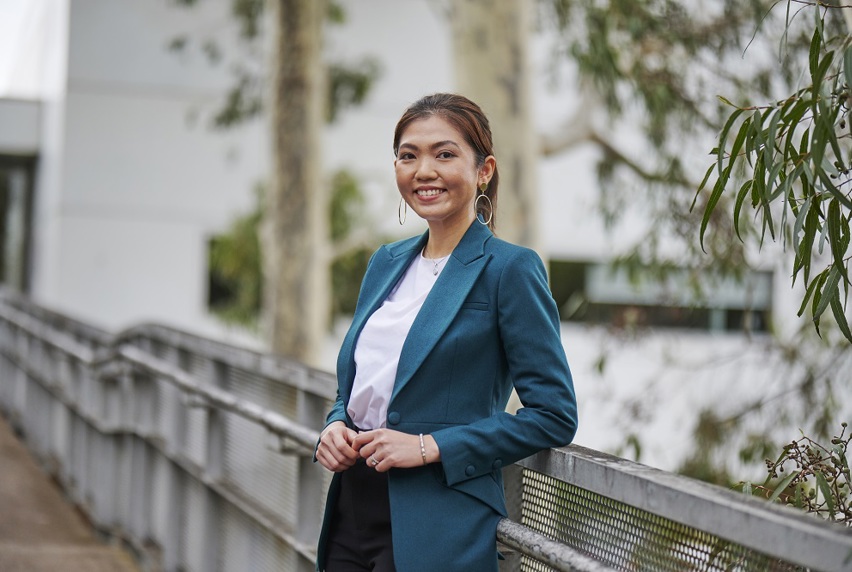Student Taylor takes International Women's Day to heart

Taylor Tran has taken this year’s International Women’s Day theme ‘Choose to Challenge’ to heart, challenging herself with short and long term goals and encouraging others to choose to challenge and stretch themselves to try new things and reach out in the community.
Taylor works to help migrants and refugees establish their lives in Australia and as a volunteer helps people to practice their English language skills, drawing on her own lived experience all the while. She’s gone from a student who benefited from the assistance of a volunteer, to a volunteer tutor herself, and now works to match tutors with learners.
Taylor’s path to her job in Melbourne Polytechnic’s Adult Migrant English Program started in 2019 when she moved to Australia and studied the Certificate III in English as an Additional Language at AMEP. She used to work in events management and had already studied English, but the AMEP course gave her more than just lessons.
Connecting in class
‘Knowing the language is just a part of integrating into the culture,’ Taylor says. ‘The English that I learned is not like Australian English. When I first came here I knew no one except for my husband, so going to class is also a way to connect with people.’
When a call came up to help run events for AMEP, Taylor raised her hand and trained with the Volunteer Tutor Scheme. This time saw her studying in the morning, volunteering in the afternoon and when a job came up, Taylor was the successful applicant.
She’s happy she is able to give back after receiving support herself - the Volunteer Tutor Scheme benefits both parties, ‘speaking from the point of the learner, they are friendly connections with Australian society,’ she says. ‘You have a friend you can trust to ask the simple questions like how can I use a myki card, where is the best place to get food for your pet, for example. Those kinds of questions you can google for it, but not like a local insider - that’s what you can get from a tutor. It’s a connection to the community in a broader way.
Tutors include retired people, university students, and migrants and refugees themselves. Migrants and refugees who volunteer want to give back to the society, while retired people want to share their experience, make new friends and learn about other cultures.
Helping hands
Taylor says women who come to Australia as migrants and refugees can feel trapped, by duty and responsibility in the home, with family and children, as well as work. ‘They don't have a chance to go out to live their fullest life. What I'm trying to do when I volunteer tutor is I try to encourage and talk to my learner, to go out, to volunteer.
And Taylor had a good news story with her first-ever learner, ‘she's a Vietnamese lady and when I met her she had very little English, but I talked to her about volunteering and the pathway that I went through and I'm not sure if that affected her at that moment, but about a year later she moved house and then she came back to me, saying that she did volunteer for a childcare centre and studied a childcare course and finally she landed a job. I'm not sure if the story that I told her affected her in any way but I think partly it Inspired her.
Kicking community goals
Taylor has challenged herself with a short-term goal with the Australian Vietnamese Women’s Association, where she is trying to set up a volunteering program and English tutoring for Vietnamese women who are not eligible with AMEP (it’s available within five years of arrival).
Taylor’s long-term goal is to get more involved in the community on a broader level by participating more in community reference groups, such as a recent one around the relocation of Darebin Council’s Intercultural Centre. ‘I feel like I am just planting the seed.’
Everyone's got something to give
‘Every woman has knowledge, they have qualifications, they have their history, their story and they have a skill that they can offer, so don’t shy away from showing them,’ Taylor says. ‘Everyone's got something to give even if they're not sure what it might be. Everyone has something that they can offer to the community to someone else. ‘